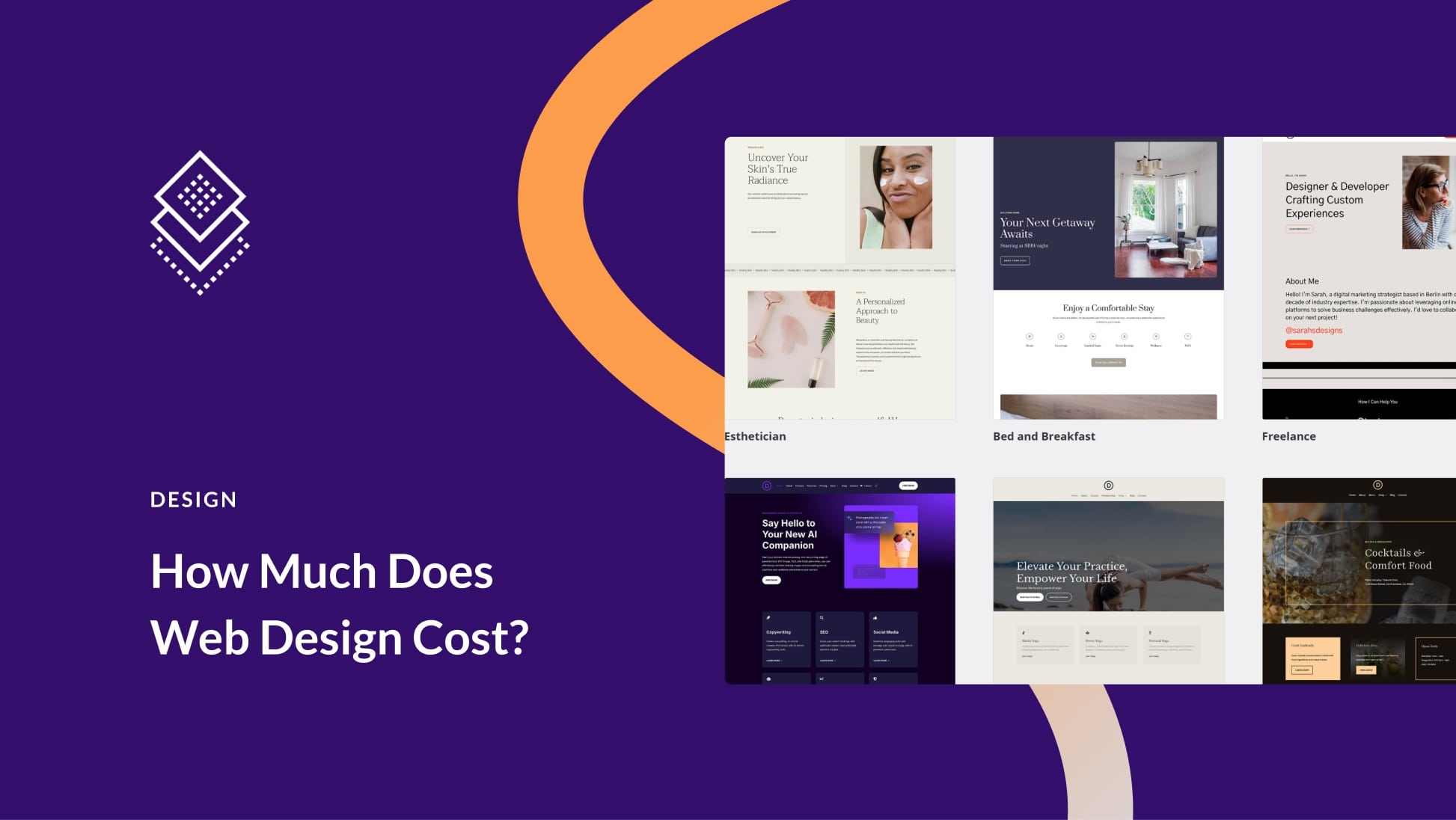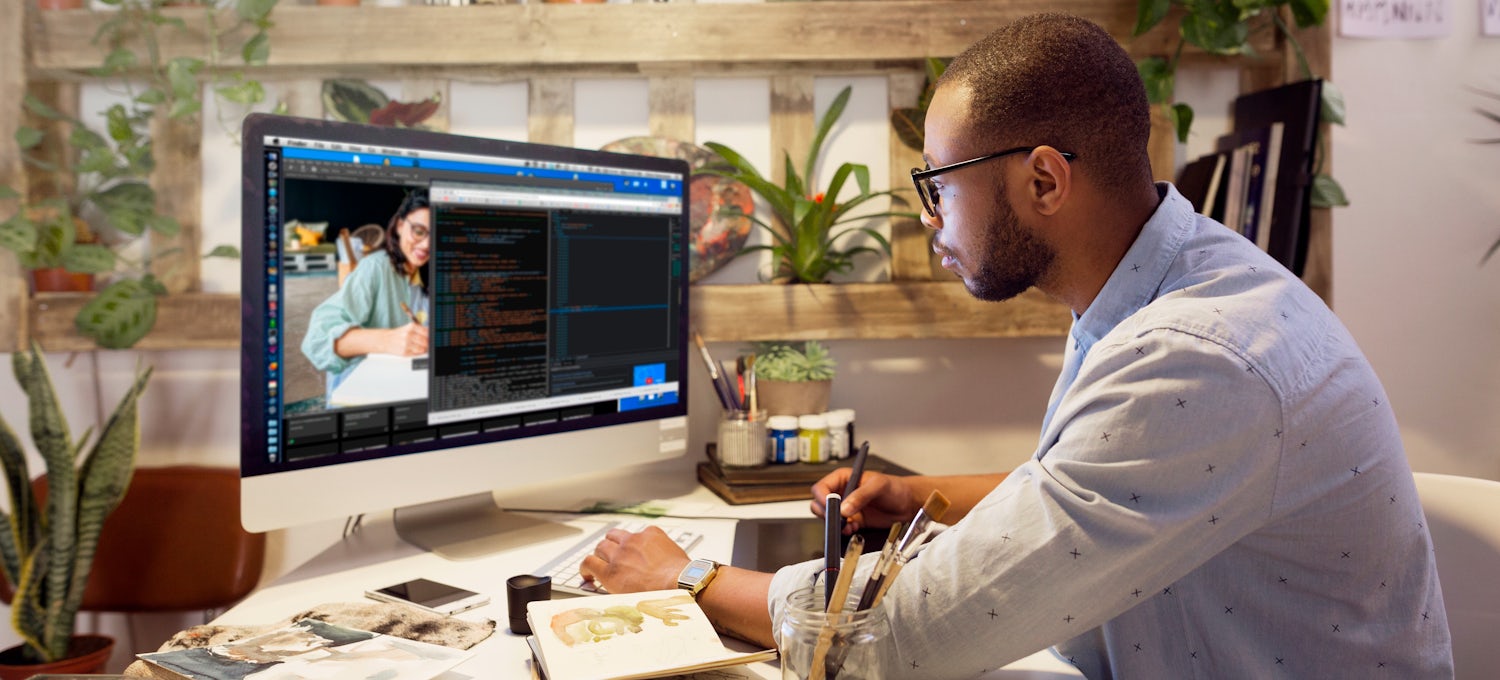The Most Effective Sorts Of Website Design to Improve User Experience and Involvement
In the ever-evolving landscape of digital interaction, the efficiency of Web layout significantly impacts individual experience and interaction. Numerous layout approaches, such as minimalist, responsive, and interactive designs, each deal special benefits that can provide to varied customer needs.
Minimalist Web Design
As digital landscapes become increasingly cluttered, minimalist website design has actually become an effective method to enhancing user experience. This design philosophy focuses on simpleness, concentrating on essential elements while removing unneeded diversions. By using enough white room, simple navigation, and a limited shade scheme, minimalist design cultivates clearness and guides user attention to key material.
The core principle of minimalist Web style is to produce a seamless communication for customers. By minimizing cognitive tons, users can quickly realize info without feeling bewildered. This direct method not just enhances usability yet likewise encourages engagement, as site visitors are more probable to check out a site that is visually enticing and very easy to navigate.
Additionally, minimal design often stresses typography and imagery, using these elements purposefully to convey messages properly. This focus on crucial elements can boost brand identification and create a remarkable user experience. Fundamentally, minimal Web layout is not just a pattern; it is a thoughtful methodology that acknowledges the importance of user-centered layout. By stripping away extraneous components, developers can produce an extra engaging, effective, and satisfying Web experience for all users.
Responsive Website Design
In today's diverse electronic environment, responsive Web layout has actually become vital for developing a smooth customer experience throughout a multitude of devices. As users accessibility websites on smart devices, desktops, tablets, and laptops, the capacity of a website to adapt its format and web content to various display sizes and resolutions is vital.
Receptive Web style utilizes flexible grids, images, and CSS media questions to ensure that Web material is offered efficiently, regardless of the device used. This strategy not only enhances the aesthetic charm of a web site yet likewise substantially enhances usability. Customers are more probable to involve with a site that supplies a regular experience, as it gets rid of the disappointment of having to zoom in or scroll exceedingly.
By embracing receptive style, businesses can enhance their exposure and get to a broader target market. In recap, responsive Web layout is a fundamental technique that enhances customer experience, engagement, and general contentment.
Interactive Website Design
Receptive website design prepares for enhancing individual experience, yet interactive Web style takes this an action further by engaging individuals in an extra dynamic method - Aligned Position Web Design. By including elements such as animations, clickable prototypes, and real-time comments, interactive website design mesmerizes customers, attracting them into a richer browsing experience
This method not just cultivates engagement but likewise motivates customers to discover content actively rather than passively consuming it. Methods such as gamification, where customers earn benefits for completing straight from the source tasks, can dramatically enhance the time invested in a site and enhance general complete satisfaction. Interactive functions can streamline complicated info, making it much more satisfying and absorbable.

Integrating interactive design aspects can also lead to higher conversion prices, as users are most likely to involve with a site that proactively entails them. Aligned Position Web Design. Ultimately, interactive website design transforms individual experiences into remarkable journeys, making certain that visitors return time after time
Apartment Layout
Characterized by its minimalistic method, flat style highlights simpleness and functionality, removing unnecessary elements and focusing on vital functions. This style approach focuses on use, ensuring that customers can browse user interfaces with ease and performance. By using a tidy visual, level style gets rid of the clutter often found in more ornate designs, therefore boosting customer emphasis on material and functionality.
The hallmark of level layout hinges on its use strong shades, straightforward typography, and geometric forms. These aspects contribute to a visually enticing user interface that is both friendly and contemporary. Additionally, flat layout promotes a feeling of quality, enabling users to discern crucial activities and info without disturbance.
In addition, level design is particularly reliable in responsive Web style, as its simpleness look these up equates well across numerous gadgets and display dimensions. The absence of intricate textures and slopes reduces filling times, which is vital for preserving customer interaction. As electronic landscapes continue to evolve, level layout stays a relevant option for producing straightforward sites that improve overall experience. By concentrating on vital features, flat layout not only satisfies customer requirements yet also motivates seamless interaction, making it a crucial component of efficient Web design approaches.
Flexible Website Design
Flexible website design customizes the individual experience by creating multiple dealt with layouts tailored to different screen sizes and gadgets. Unlike responsive design, which fluidly changes a solitary design, flexible layout uses distinctive designs for specific breakpoints, guaranteeing ideal presentation on different platforms. This method enables designers to concentrate on the distinct characteristics of each gadget, improving functionality by delivering exactly what customers require based upon their context.
Among the key benefits of adaptive website design is its capability to enhance tons times and performance. By serving customized material and pictures that fit the user's device, sites can minimize information use and enhance loading rates. This is specifically beneficial for customers with slower links or restricted data strategies.

In addition, adaptive layout assists in an extra consistent and regulated branding experience. Since designers develop multiple designs, they can ensure that the aesthetic aspects straighten with the brand's identity throughout various platforms - Aligned Position Web Design. This leads to a cohesive individual experience, boosting engagement and promoting customer retention
Verdict
Finally, the assimilation of minimalist, receptive, and interactive website design principles dramatically enhances individual experience and involvement. Minimalist style fosters clarity and focus, while responsive style makes certain adaptability throughout various devices, promoting availability. Interactive layout astounds customers through dynamic components, motivating exploration and customization. Collectively, these layout approaches add to the development of easy to use settings that not just improve fulfillment yet additionally drive greater conversion prices, emphasizing their essential importance in contemporary Web style methods.

Minimalist style promotes clearness and emphasis, while receptive layout makes certain adaptability across different gadgets, advertising access. Jointly, these layout comes close to contribute to the creation of easy to use atmospheres that not only enhance contentment yet also drive greater conversion prices, underscoring their crucial significance in contemporary Web design strategies.
Comments on “Expert Aligned Position Web Design: Elevate Your Digital Presence with Our Professional Services”